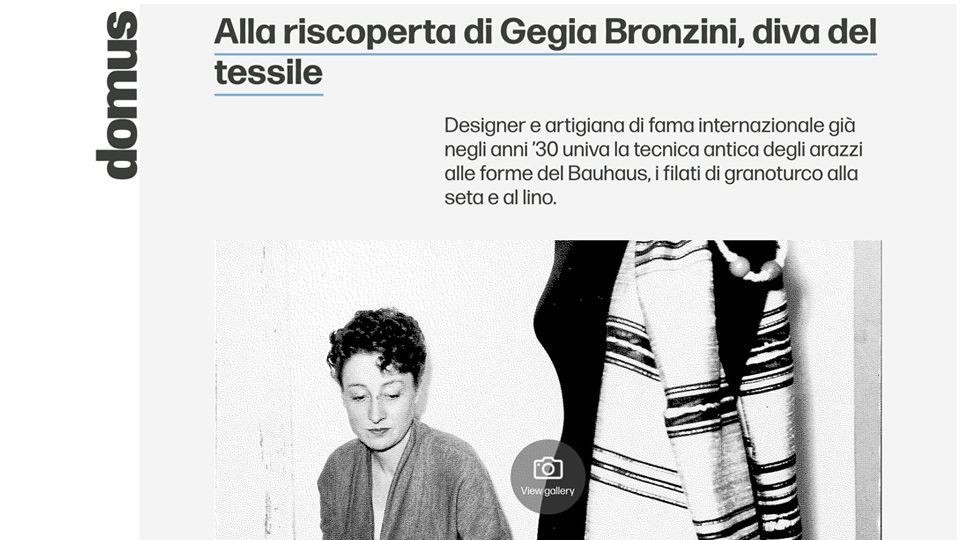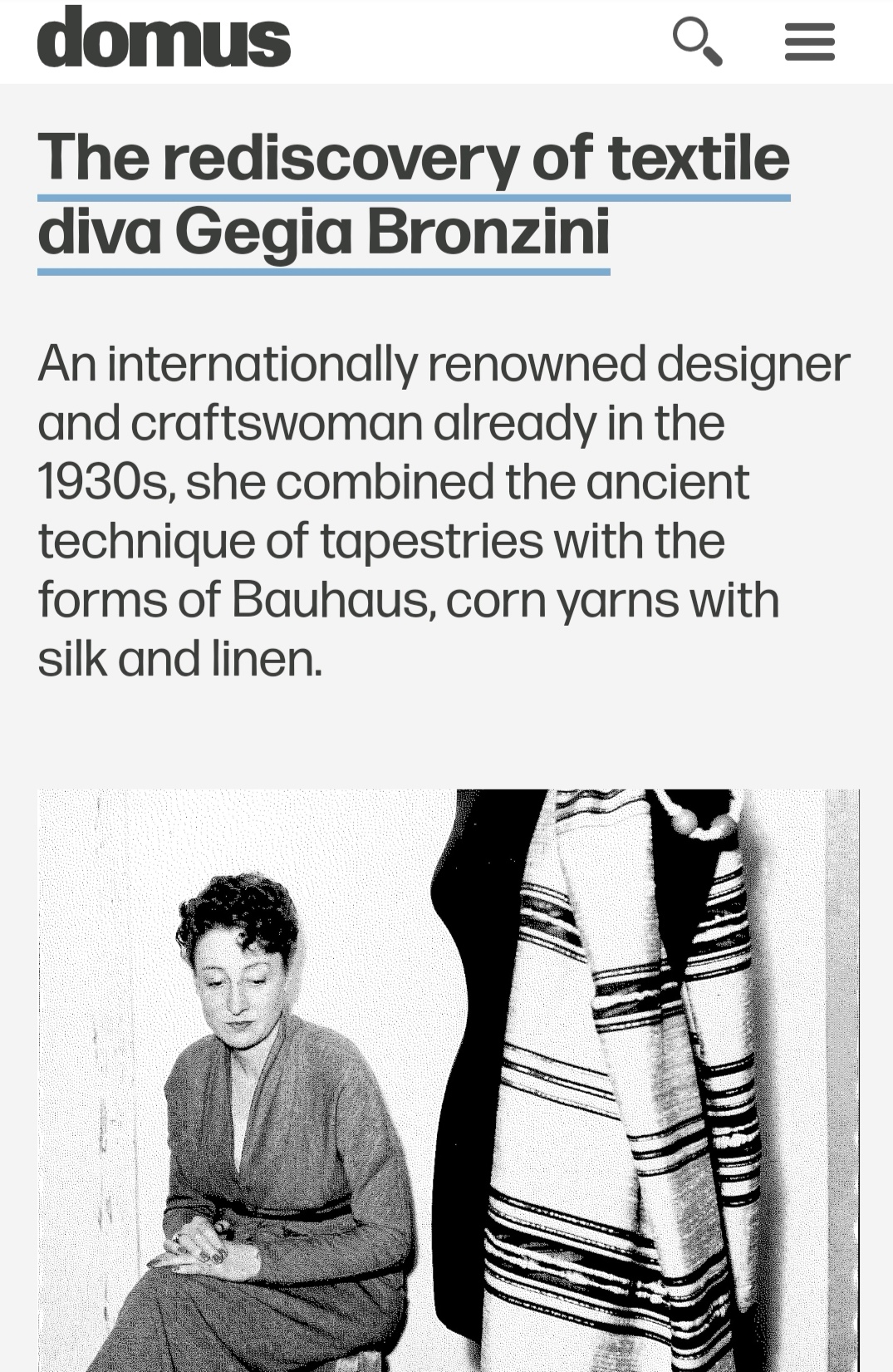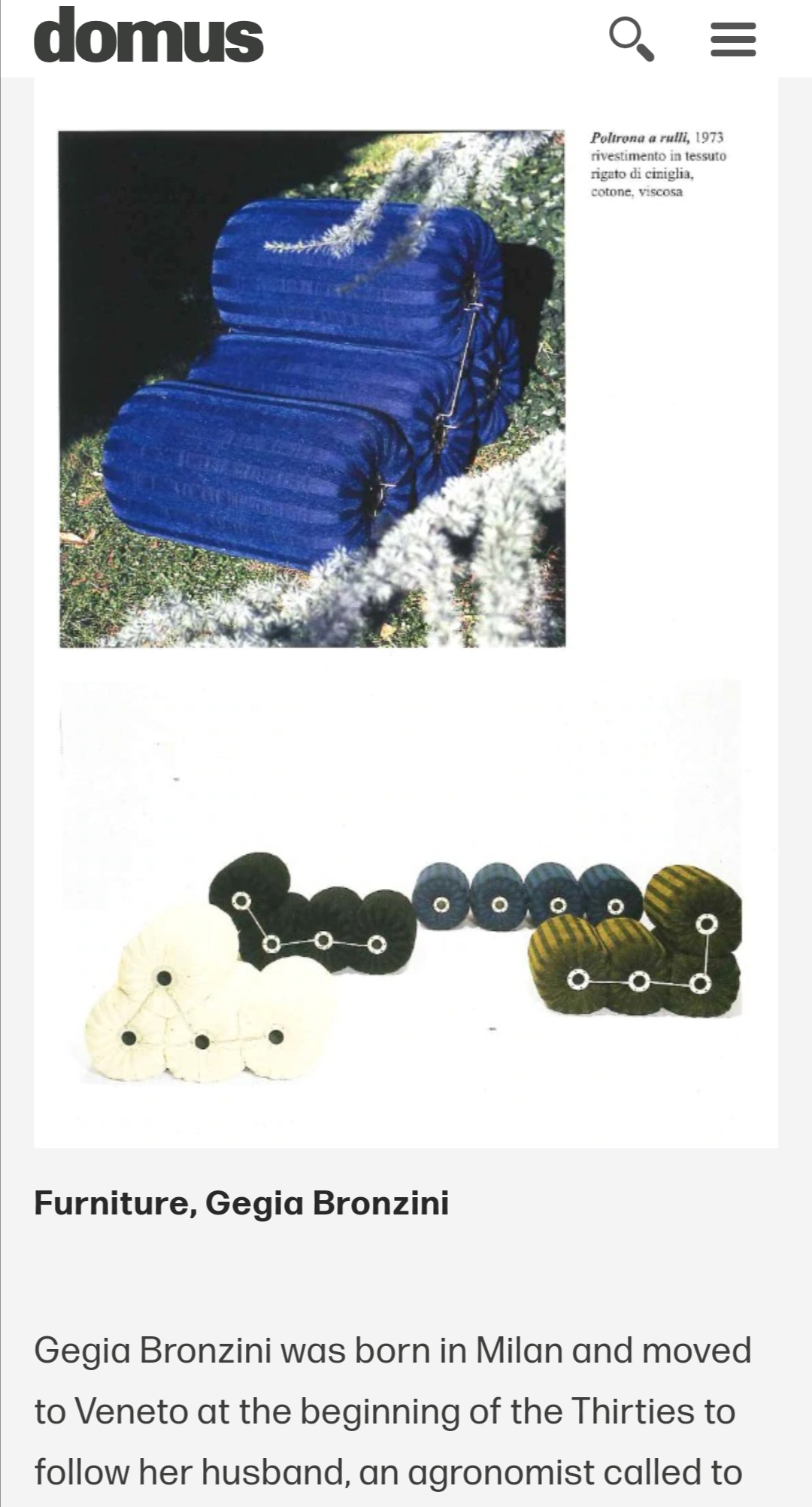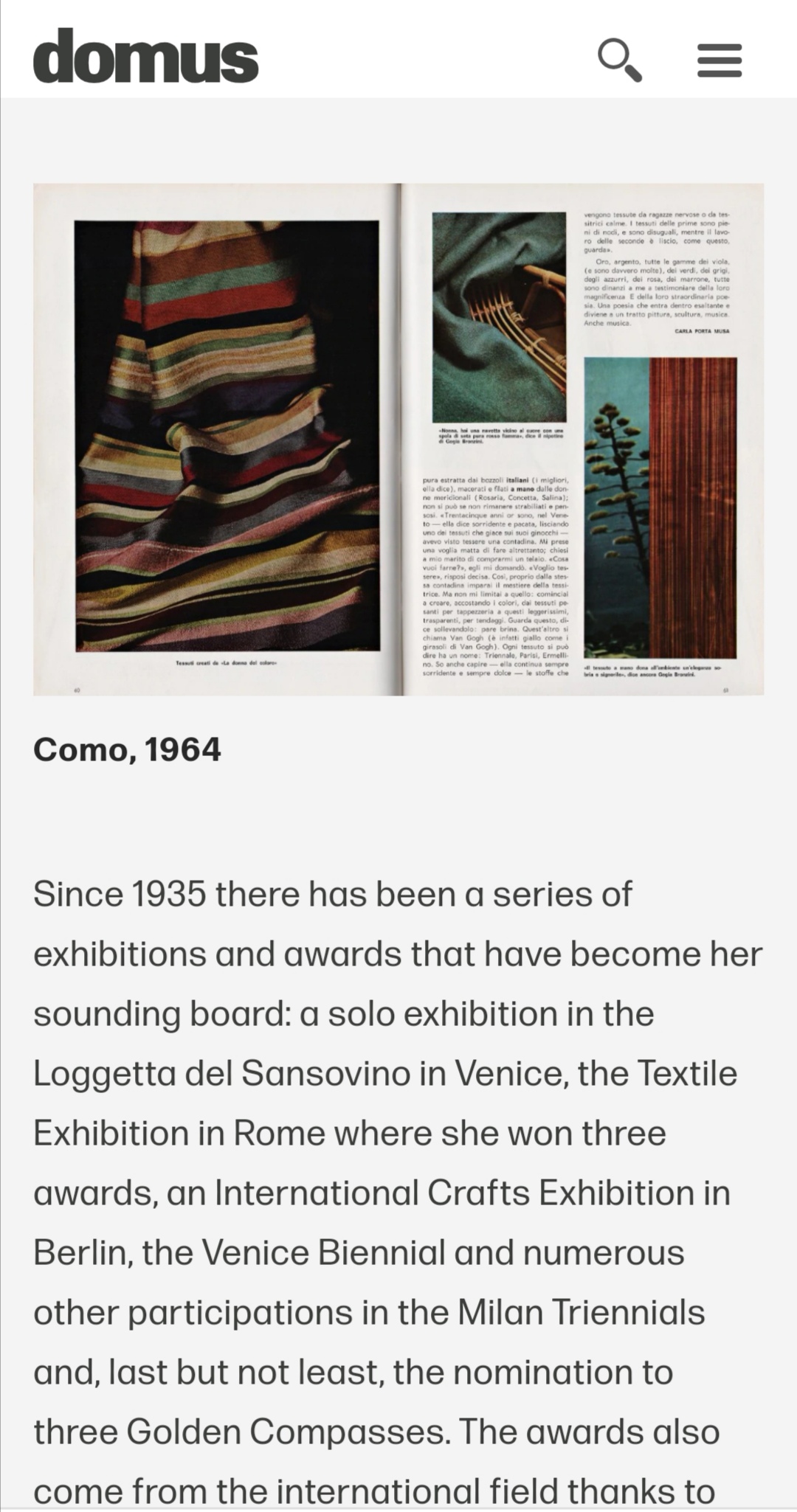
THE REDISCOVERY
OF TEXTILE DIVA GEGIA BRONZINI
THE REDISCOVERY
OF TEXTILE DIVA
GEGIA BRONZINI
THE REDISCOVERY
OF TEXTILE DIVA
GEGIA BRONZINI
THE REDISCOVERY
OF TEXTILE DIVA
GEGIA BRONZINI
THE
REDISCOVERY
OF TEXTILE
DIVA GEGIA
BRONZINI
DOMUS | 29 november 2020
“An internationally renowned designer and craftswoman already in the 1930s, she combined the ancient technique of tapestries with the forms of Bauhaus, corn yarns with silk and linen.”
A typically feminine know-how culture characterises an essential period of Italian design between the 1930s and 1970s: a silent line of great manual skill that accompanied the research and the experimentation among the arts. We are talking about the world of textiles, so dear to Gio Ponti that he dedicated a column to it in Domus and an entire issue on the magazine, Stile (n.11, 1941), which featured a number of women who played a role as craftsmen/artists, most of whom are still unknown to the most, such as Renata Bonfanti, Anita Pittoni, Gegia Bronzini and Carla Badiali.
DOMUS | 29 november 2020
“An internationally renowned designer and craftswoman already in the 1930s, she combined the ancient technique of tapestries with the forms of Bauhaus, corn yarns with silk and linen.”
A typically feminine know-how culture characterises an essential period of Italian design between the 1930s and 1970s: a silent line of great manual skill that accompanied the research and the experimentation among the arts. We are talking about the world of textiles, so dear to Gio Ponti that he dedicated a column to it in Domus and an entire issue on the magazine, Stile (n.11, 1941), which featured a number of women who played a role as craftsmen/artists, most of whom are still unknown to the most, such as Renata Bonfanti, Anita Pittoni, Gegia Bronzini and Carla Badiali.
DOMUS | 29 november 2020
“An internationally renowned designer and craftswoman already in the 1930s, she combined the ancient technique of tapestries with the forms of Bauhaus, corn yarns with silk and linen.”
A typically feminine know-how culture characterises an essential period of Italian design between the 1930s and 1970s: a silent line of great manual skill that accompanied the research and the experimentation among the arts. We are talking about the world of textiles, so dear to Gio Ponti that he dedicated a column to it in Domus and an entire issue on the magazine, Stile (n.11, 1941), which featured a number of women who played a role as craftsmen/artists, most of whom are still unknown to the most, such as Renata Bonfanti, Anita Pittoni, Gegia Bronzini and Carla Badiali.
DOMUS | 29 november 2020
“An internationally renowned designer and craftswoman already in the 1930s, she combined the ancient technique of tapestries with the forms of Bauhaus, corn yarns with silk and linen.”
A typically feminine know-how culture characterises an essential period of Italian design between the 1930s and 1970s: a silent line of great manual skill that accompanied the research and the experimentation among the arts. We are talking about the world of textiles, so dear to Gio Ponti that he dedicated a column to it in Domus and an entire issue on the magazine, Stile (n.11, 1941), which featured a number of women who played a role as craftsmen/artists, most of whom are still unknown to the most, such as Renata Bonfanti, Anita Pittoni, Gegia Bronzini and Carla Badiali.
DOMUS | 29 november 2020
“An internationally renowned designer and craftswoman already in the 1930s, she combined the ancient technique of tapestries with the forms of Bauhaus, corn yarns with silk and linen.”
A typically feminine know-how culture characterises an essential period of Italian design between the 1930s and 1970s: a silent line of great manual skill that accompanied the research and the experimentation among the arts. We are talking about the world of textiles, so dear to Gio Ponti that he dedicated a column to it in Domus and an entire issue on the magazine, Stile (n.11, 1941), which featured a number of women who played a role as craftsmen/artists, most of whom are still unknown to the most, such as Renata Bonfanti, Anita Pittoni, Gegia Bronzini and Carla Badiali.



Gegia Bronzini
via Don Capiaghi 2/4
22070 Bregnano
Como, Italy
ph. +39 031 771631
fax +39 031 774892
Gegia Bronzini
via Don Capiaghi 2/4
22070 Bregnano
Como, Italy
ph. +39 031 771631
fax +39 031 774892
Gegia Bronzini
via Don Capiaghi 2/4
22070 Bregnano
Como, Italy
ph. +39 031 771631
fax +39 031 774892
Gegia Bronzini
via Don Capiaghi 2/4
22070 Bregnano
Como, Italy
ph. +39 031 771631
fax +39 031 774892
Copyright © 2020 TESSILE OFFICINA SRL - P. Iva 03879260135 - REA CO-403793 - Privacy Policy - Cookie Policy - Webdesign by Housegrafik
Copyright © 2020 TESSILE OFFICINA SRL - P. Iva 03879260135 - REA CO-403793
Privacy Policy - Cookie Policy - Webdesign by Housegrafik
Copyright © 2020 TESSILE OFFICINA SRL
P. Iva 03879260135 - REA CO-403793
Privacy Policy - Cookie Policy
